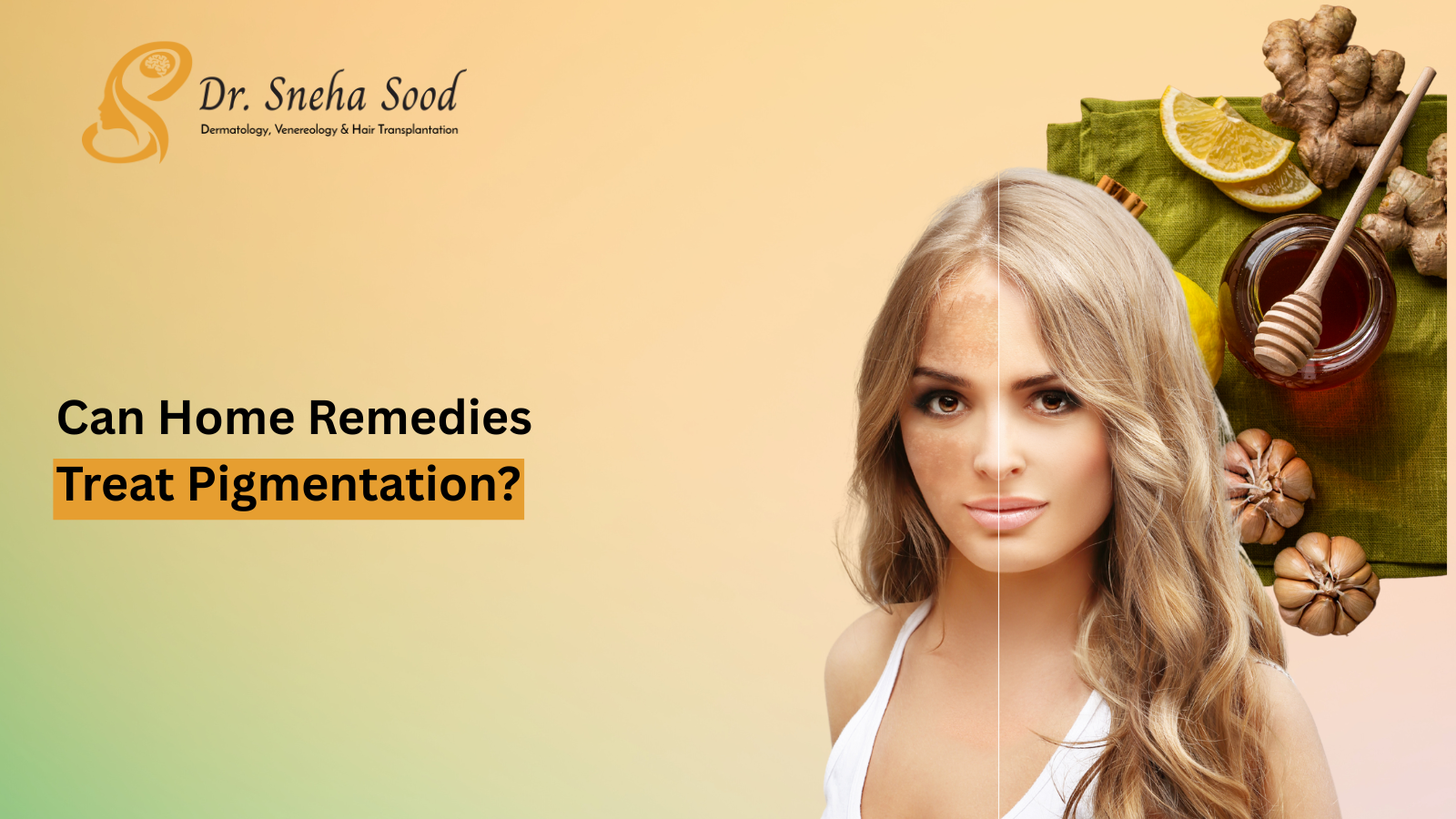



Pigmentation issues like dark spots, melasma, and uneven skin tone are common concerns that affect people of all skin types. Whether caused by sun exposure, hormonal changes, or post-acne marks, pigmentation can impact your confidence and skin health. It’s no surprise that many turn to home remedies in search of quick fixes, such as lemon juice, turmeric, and aloe vera, but how effective are they really?
Dr. Sneha Sood, a renowned dermatologist in Bangalore, is here to provide you with a scientific perspective on what works and what doesn’t.
Let’s look at some of the most common DIY treatments people try at home:
Dr. Sneha’s Take: “While these ingredients may offer temporary brightness or hydration, pigmentation is far more complex than it appears. Surface-level home remedies cannot address deeper melanin imbalances or hormonal triggers.”
In some cases, DIY treatments can make pigmentation worse, especially if they cause inflammation or sun sensitivity.
When it comes to treating pigmentation effectively, consistency, protection, and dermatologist-approved care are key.
Sunscreen – The most powerful tool in your skincare arsenal. Daily SPF prevents pigmentation from getting worse.
Home remedies might seem appealing, but when it comes to treating pigmentation effectively, they often fall short. Pigmentation is a multi-layered condition that demands targeted, professional care. From topical ingredients to in-clinic procedures, the right approach can make all the difference.
If you’ve been struggling with dark spots or uneven skin tone, don’t rely on trial and error. Consult Bangalore’s trusted expert, Dr. Sneha Sood, for a customised pigmentation treatment plan that’s both safe and effective. Schedule your appointment now and take the first step toward clearer, healthier skin. Visit Dr. Sood Aesthetics to learn more!